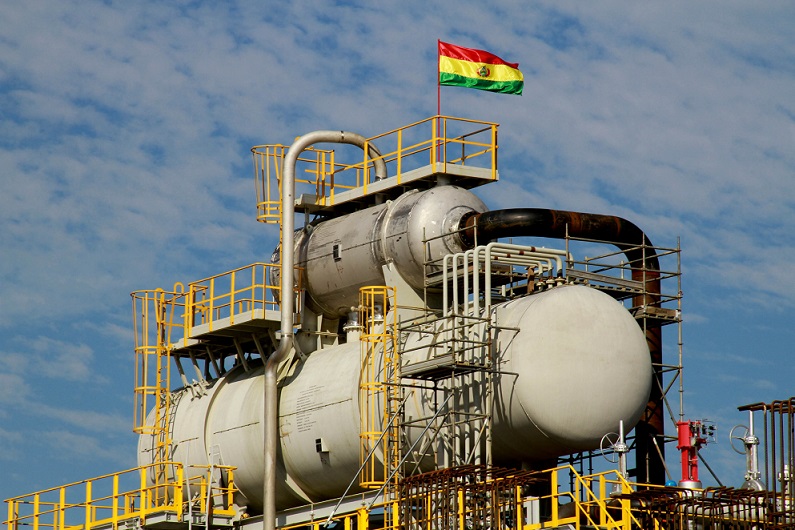RIO DE JANEIRO, BRAZIL – It is a reality. Both Argentina and Brazil do not see Bolivia as a gas supplier beyond 2026 and 2030. Both have attracted investments to develop two giant projects: Vaca Muerta (on the Argentine side) and El Presal (on the Brazilian side).
The accelerated development of these two projects coincides with the decline of gas production in Bolivia due to the lack of exploration during the era of former President Evo Morales.
An aspect that the administration of President Luis Arce is now recognizing through the state-owned YPFB, which, given this situation, aims to implement an exploration plan that expects to produce results by 2024.

But what are Bolivia’s clients doing for now? In Argentina, they have a clear picture. According to the Argentine Energy Secretariat projections, they only intend to have gas imports until 2026.
Beyond that date, Argentina’s goal is to supply its domestic market and increase its exports. Until that year, the country is expected to produce 165 million cubic meters per day (MMm3/d) and import less than 7 MMm3/d, with Bolivia as its main supplier. But by 2027, it is estimated to produce 170 MMm3/d and not import.
The “Argentine Gas Production Promotion Plan 2020-2023” foresees the substitution of gas imports, generating savings of US$5.6 million and tax savings of US$1.2 million until 2023.
Brazil is not far behind, according to the Ministry of Mines and Energy of that country. It plans to invest US$400 billion until 2030 in the exploration and production of hydrocarbons, especially gas and crude oil.
Specialist Hugo del Granado said that the situation is complex because Bolivia cannot guarantee natural gas shipments to its main markets. It has led both Argentina and Brazil to maximize their efforts to increase their production.
Del Granado said that the formula for Bolivia to become a major player in this industry again is well known: to make its tax and hydrocarbons policy more flexible. “But unfortunately, this is not politically convenient for the government. They are determined to demonstrate that their economic model works,” he said.
Along these lines, Eduardo Ibáñez, director of Hydrocarbons and Mines of the Government of Santa Cruz, explained that the low production of hydrocarbons in Bolivia coincides with the significant investments made by both Argentina and Brazil.
“They, especially Argentina, are considering their own production forecast for 2026. They no longer need our gas no matter how much more we may have because their prospects will be successful,” he said.
YPFB’s version of the matter was sought and questions were sent, but the company did not answer. Previously, the president of the state-owned company, Armin Dogarthen, said that both countries are the most important markets in the region and the Bolivian offer is one more in the face of liquefied natural gas (LNG).
Regarding Vaca Muerta, he indicated that the production of this field “would compete more with LNG, which is more expensive, than with Bolivian gas”.

